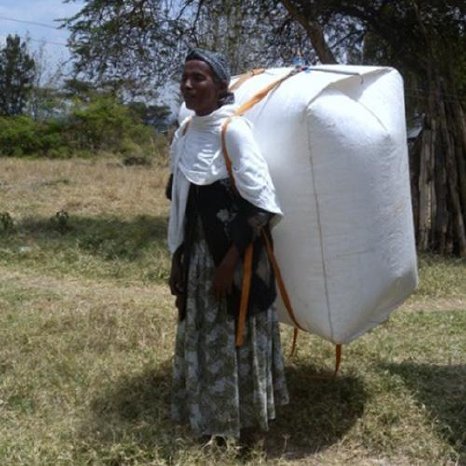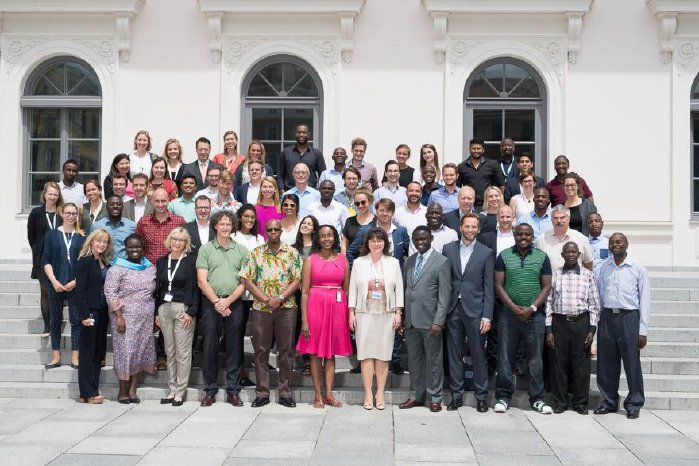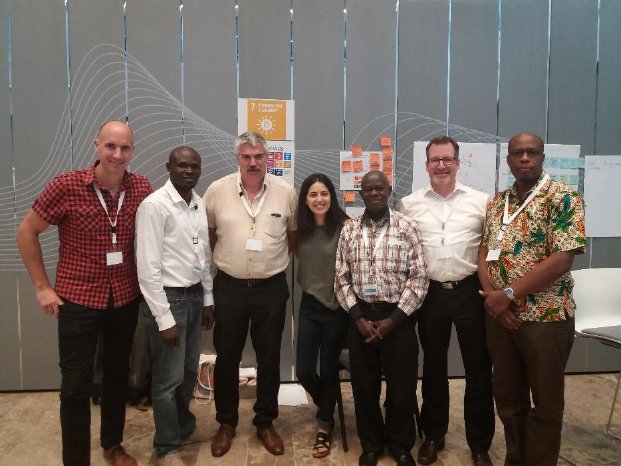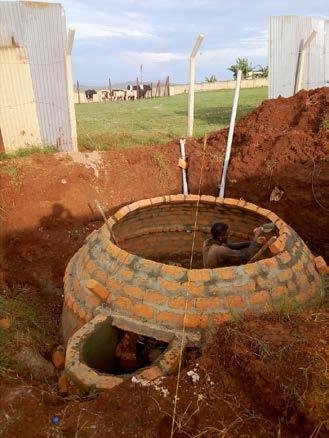The business idea of the team "Agali Awamu" was formed during the innovation workshop of the lab of tomorrow. Christof Langguth, sales representative of PlanET Biogastechnik GmbH from Vreden, took over the introduction for the group and pointed out the opportunities and problems from the point of view of the German biogas technology supplier in Uganda. The country has an insufficient and unreliable power supply but a growing population as well as agri-food industry.
Langguth comments: "For medium and large biogas plants, off-grid solutions are needed, in which fossil-generated energy can be replaced by electricity from a biogas plant."
On the other hand, micro biogas plants, e.g. filled with the waste of a few cows or pigs have been in operation in Uganda for many years, but due to the relatively high investment costs of around € 1,000, similar to liquefied petroleum gas or electricity, is unaffordable to much of the rural population.
Therefore, wood is still used for cooking in rural areas and charcoal is used in urban areas. This contributes to de-forestation which fuels climate change. In addition, the wood collection, which is done almost exclusively by women and girls,and can be very time-consuming and sometimes dangerous. Cooking on traditional ovens with firewood is also inefficient and extremely damaging to health.
The group "Agali Awamu" developed a concrete project proposal, the realization of which was subsequently supported by the lab of tomorrow. For this purpose, a biogas plant with a volume of 10m³ was built in a village near the sugar factory Kakira Sugar Limited. For the prototype, five families of the village bring the daily animal manure and their household waste to the centrally built biogas plant, to which a small cattle farm is also attached.
For a fee that is slightly lower than the price for firewood or charcoal, the biogas produced here is filled into 1m³ portable film containers. The villagers then carry this biogas backpack home and connect it to a gas cooker. The produced biogas is enough to provide a family of 5 with several warm meals a day.
PlanET Biogastechnik signed a Memorandum of Understanding, agreeing to support the project remotely. For Managing Director Jörg Meyer zu Strohe, the main focus is on opportunities to build commercial biogas plants with power generation in East Africa in the long term through this entry into the market. He also sees the commitment of PlanET in the framework of the "Marshall Plan for Africa" announced by the Federal Government, which should help to combat the causes of the flight of the African people in the direction of Europe.
After filling the fermenter, the first gas was produced in February 2018 – and the small plant will shortly have reached full production.
The team "Agali Awamu" now pitched its business model in front of a panel of representatives from development cooperation, science and industry. As one of three teams they were selected to start the pilot phase with the support of the lab of tomorrow team. A sensitization of the villagers for the concept of biogas as well as the sharpening of the financing model are planned as activities. Soon there will be initial results on how the concept is accepted by all stakeholders, how the situation of the villagers is improving, and how many people are benefiting from the project.




